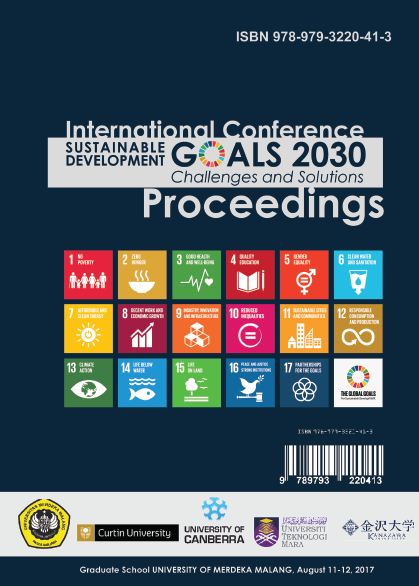The Impact of Socialist Feminism on Strengthening Women's Capacity
Case Study on Home Industry Management in Basuhan Village, Eromoko Subdistrict, Wonogiri Regency, Central Java Province
DOI:
https://doi.org/10.26905/icgss.v9i1.15717Keywords:
Impact of Socialist Feminism, Women's Capacity Building, Home Industry ManagementAbstract
Women are often stereotyped as weak and easily oppressed, prompting the rise of feminist movements, including socialist feminism, which views women’s oppression as rooted in both capitalism and patriarchy. This study aims to describe and analyze the impact of socialist feminism on strengthening women's capacity in managing home industries in Basuhan Village, Eromoko District, Wonogiri Regency, Central Java. Using a descriptive qualitative approach, data were collected through observation, interviews, and document analysis. The findings show that socialist feminism has positively influenced women's self-confidence and motivation to improve their economic conditions. Women who receive family support, earn their own income, and are independent of their husbands tend to have higher confidence and drive for change. However, negative impacts were also found, particularly in the quality of family relationships and parenting, which some women still struggle to maintain effectively. Overall, the strengthening of women’s capacity is reflected in key entrepreneurial traits such as task and result orientation, risk-taking, leadership, future planning, creativity, and innovation. The study suggests that working women and home industry owners should maintain strong family and community relationships and ensure good parenting practices, so that both work and family life can be balanced effectively.
Downloads
References
Abbas, N. (2020). Dampak Feminisme Pada Perempuan. Al-Wardah: Jurnal Kajian Perempuan, Gender Dan Agama, 14 (2), 187–198.
Bendar, A. (2019). Feminisme dan Gerakan Nasional. Al-Wardah: Jurnal Kajian Perempuan, Gender Dan Agama, 13 (1), 24–35.
Manembu, & E., A. (2018). Peran Perempuan dalam Pembangunan Masyarakat Desa. Jurnal Ilmu Politik, 7 (1).
Merina, B. (2023a). Hak Suara Orang Asli Papua (Studi Emansipasi Perempuan Orang Asli Papia di Kampung Yoboi, Distrik Sentani Kabupaten Jayapura Provinsi Papua Dalam Perspektif Teori Kritis Jurgen Habermas).
Merina, B. (2023b). The Empowerment of Indigenous Papuan Women Through Home-Based Industries: A Case Study in Papua, Indonesia. Academic Journal of Interdisciplinary Studies, 12 (5), 38–48.
Puspita, D. (2012). Modal Sosial Perempuan dalam Peran Penguatan Ekonomi Keluarga. Jurnal Pemikiran Sosiologi, 1 (2), 69–80.
Wibowo, G., Chairuddin, Rahman, A., & Riyadi. (2022). Kesetaraan Gender: Sebuah Tinjauan Teoris Feminisme. Jurnal Ilmu-Ilmu Sejarah, Sosial, Budaya Dan Kependidikan, 9 (2), 121–127.
Downloads
Published
How to Cite
Issue
Section
License
Copyright (c) 2025 Proceedings of International Conference of Graduate School on Sustainability

This work is licensed under a Creative Commons Attribution-ShareAlike 4.0 International License.
Authors who publish in this journal agree to the following terms: Proceeding of International Conference of Graduate School on Sustainability is licensed under Creative Commons Attribution-ShareAlike 4.0 International. Creative Commons Attribution-ShareAlike 4.0 International License (CC BY 4.0) is applied when mandated by research funders, such as those who have signed. Open Access articles in Jurnal Cakrawala Hukum are published under theCreative Commons Attribution-ShareAlike 4.0 International (CC BY 4.0) license. The copyright of the received article shall be assigned to the journal as the publisher of the journal. The intended copyright includes the right to publish the article in various forms (including reprints). The journal maintains the publishing rights to the published articles. Authors must agree to the copyright transfer agreement by checking the Copyright Notice column at the initial stage when submitting the article.









